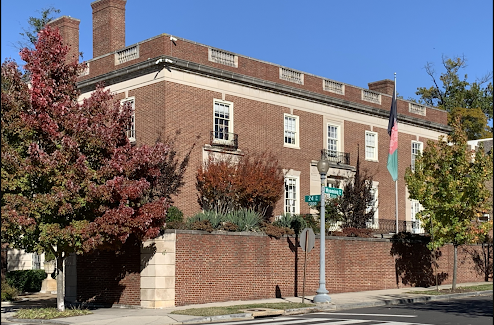 |
| Refugees sleeping on the sidewalk in Indonesia (Photo source: social media) |
What is going on in Indonesia? It has become an inferno for thousands of refugees who have been stranded for years now. Indonesia has not signed the 1951 Refugee Convention and its supplemental 1967 Protocol which form the basis of rights of refugees and obligations of governments to protect them. The Indonesian government has done nothing but to create a situation that has become a protracted agony and suspense, a humanitarian predicament that has resulted in the loss of dozens of lives.
In December 2016, in an attempt to a better humanitarian response to the refugee crisis, the Indonesian president Joko Widodo issued a decree called Presidential Regulation No. 125, which allows refugees and asylum seekers to stay in Indonesia, not to be forcibly returned to their country of origin. In the Article 1, no 1 it says:
Foreign refugee, hereinafter referred to as refugee, shall mean a foreigner who resides within the territory of the Republic of Indonesia due to a well-founded fear of persecution due to race, ethnicity, religion, nationality, membership of a particular social group, and different political opinions, and does not wish to avail him/herself of protection from their country of origin and/or has been granted the status of asylum-seeker or refugee by the United Nations through the United Nations High Commissioner for Refugees.
From the language, it is clear that Indonesia is able to protect refugees and wants them in its soil only for a terminable period, so to consider itself as a transit country.
According to the UNHCR website, there are currently 13,273 refugees registered (there might be unregistered refugees and not counted) in Indonesia. Of that number 56% which is 7,432 are from Afghanistan, the rest are from Somalia and Myanmar. But the refugee resettlement has been slow and some of these refugees have been waiting to be resettled in third countries for nearly 10 years or more.
The endless waiting coupled with terrible conditions of living contributed to psychological trauma. Pictures of refugees being shared on social media showing they are sleeping on sidewalks, under harsh weather conditions, on the side of the road and parking lots, some of them are placed in abandoned military buildings without running water or electricity and proper sanitation facilities. The resettlement refugees attrition in tandem with all these harsh conditions have driven refugees to feel they are condemned to slow death. As a result, 14 refugees have committed suicide and a dozen of others made failed attempts. Those who took their lives were all Afghan refugees who did not see any prospect of resettlement in third countries. Refugees have constantly protested against these inhuman conditions, they went on hunger strike, sewed lips, and set themselves on fire, but unfortunately none of these objections have changed policies implemented by the IOM, UNHCR, and the Indonesian government.
According to UNHCR, in the year 2021, only 391 refugees were settled in third countries. This is extremely slow considering the overall number of refugees totaling 13,273 in Indonesia. If we consider the average resettlement 400 refugees per year, it would take nearly 32 years for all refugees to be resettled in third countries.
One of the options that UNHCR can take to end this predicament is to negotiate with countries that have already promised accepting Afghan refugees in the aftermath of US troops withdrawal that resulted in the collapse of the Afghan government. These refugees have the priority to be resettled because they escaped the brutality and persecution of the Taliban, and after all, they have been in limbo for over a decade in a country where they have little rights as a human being. Countries like Germany, Canada, the UK, and the United States have pledged to admit thousands of refugees. The majority of these refugees are young, single, educated, ambitious and ready to contribute to societies they would land in.
Today, on January 09, 2022, people (mostly Afghanistani diasporas) have turned into Twitter using hashtag #HelpRefugees_Indonesia to amplify their voice against the pain and suffering that refugees have been enduring for years. If you can please go on Twitter and raise your voice in support of refugees who have been languishing in camps in Indonesia without access to basic rights such as work, education, and healthcare, and worst of all, living in limbo not for one or two years but over a decade.



